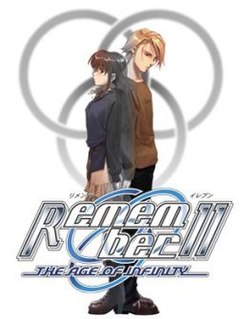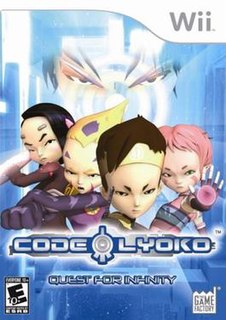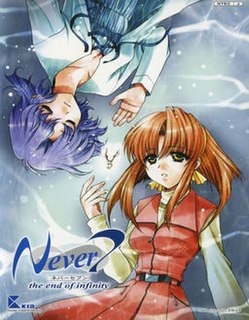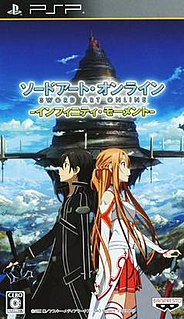Ace Combat is a hybrid flight arcade action video game franchise featuring 17 games mainly developed by Bandai Namco Studios and published by Bandai Namco Entertainment. The development team within Bandai Namco responsible for Ace Combat games is referred to as Project Aces. The franchise emphasizes fast-paced action and dramatic plots, and has established itself as one of the longest running arcade flight action franchises. As of 2018, the Ace Combat franchise has sold over 14 million copies, making it Bandai Namco's sixth best-selling franchise, behind Tekken, Pac-Man, Gundam, Tales, and Super Robot Wars.

Neversoft Entertainment was an American video game developer, founded in July 1994 by Joel Jewett, Mick West and Chris Ward. Neversoft was known for the Spider-Man video game as well as the Tony Hawk's and Guitar Hero video game franchises. The company was acquired by Activision in October 1999. The studio was merged with Infinity Ward on May 3, 2014 and was made defunct on July 10, 2014.
Infinity refers to a collection of notions of boundlessness in mathematics, philosophy, and theology.

KID, was a Japan-based company specializing in porting and developing bishōjo games.

Snowblind Studios was a video game developer located in Kirkland, Washington. They were founded in 1997, specializing in role-playing video games. In 2009, Snowblind Studios was acquired by Time Warner, through its Warner Bros. Interactive Entertainment division. In 2010, the studio was physically relocated to Monolith. After the release of The Lord of the Rings: War in the North, the team was merged in with Monolith Productions to develop Middle-earth: Shadow of Mordor, which was released in September 30, 2014.
Call of Duty is a first-person shooter video game franchise. Starting out in 2003, it first focused on games set in World War II, but over time, the series has seen games set in modern times, the midst of the Cold War, futuristic worlds, and outer space. Infinity Ward was the series' first developer, with Treyarch later becoming the second, creating a two-team development cycle. Sledgehammer Games later became the third developer in the cycle. Activision has served as the publisher for the series since its creation. Several spin-offs and handheld versions of titles have also been made by other developers. The most recent title, Call of Duty: Black Ops 4, was released on October 12, 2018.

Call of Duty 4: Modern Warfare is a first-person shooter developed by Infinity Ward and published by Activision. An installment in the Call of Duty series, it was released in November 2007 for the PlayStation 3, Xbox 360, and Microsoft Windows, and was ported to the Wii as Call of Duty: Modern Warfare – Reflex Edition in 2009. The game breaks away from the World War II setting of previous entries in the series and is instead set in modern times. Developed for over two years, the game uses a proprietary game engine.

Remember 11: The Age of Infinity is a visual novel video game developed by KID. It was originally released on March 18, 2004 for the PlayStation 2, and has later been ported to Microsoft Windows, PlayStation Portable, iOS, and Android. The game is the third entry in the Infinity series; it is preceded by Never 7: The End of Infinity and Ever 17: The Out of Infinity, and followed by 12Riven: The Psi-Climinal of Integral and Code_18.

Code Lyoko: Quest for Infinity is a 2007 video game for the Wii console based on the animated television series Code Lyoko. It is the second game based on the French animated television series Code Lyoko. PlayStation 2 and PlayStation Portable ports of the game were released in 2008.

Secret Agent Clank is a platform game developed by High Impact Games for the PlayStation Portable and published by Sony Computer Entertainment. It was first released in North America on June 17, 2008. A PlayStation 2 version was ported by Sanzaru Games, and was released on May 26, 2009, in North America and in Europe on June 19, 2009. The game is the second and last game in the Ratchet & Clank series released for the PlayStation Portable, and the sixth and last game in the Ratchet & Clank series released for the PlayStation 2.

Call of Duty: Modern Warfare 2 is a first-person shooter video game developed by Infinity Ward and published by Activision. It was released worldwide on November 10, 2009 for Microsoft Windows, the PlayStation 3, and Xbox 360. A version for OS X was developed by Aspyr and released on May 20, 2014. The Xbox 360 version was made backward compatible for the Xbox One in 2018. It is the sixth installment of the Call of Duty series and the direct sequel to Call of Duty 4: Modern Warfare, continuing the same storyline. It was released in conjunction with two other Call of Duty games: Call of Duty: Modern Warfare: Mobilized for the Nintendo DS, and Call of Duty: Modern Warfare: Reflex, a port of Call of Duty 4 adapted by Treyarch for the Wii console.

Marvel Super Hero Squad: The Infinity Gauntlet is a fighting video game, the sequel to Marvel Super Hero Squad. It was released on November 16, 2010. Similar to the first game, it features cartoonish super-deformed versions of the Marvel Comics characters, as seen in the Marvel Super Hero Squad toy line, as well as the television show. The 3DS version was released on October 11, 2011.

Disney Infinity is an action-adventure sandbox video game developed by Avalanche Software and published by Disney Interactive Studios. It was announced on January 15, 2013. The game used collectible figurines that were then synchronized with the game, unlocking characters from Disney and Pixar properties that interact and go on adventures. The game was released for Xbox 360, PlayStation 3, Wii, Wii U, and Nintendo 3DS in August 2013. A PC version of Toy Box was also released on November 14, 2013. The game had a budget approaching $100 million. A sequel, Disney Infinity: Marvel Super Heroes, was released on September 23, 2014. The third edition, Disney Infinity 3.0, was released on August 30, 2015, and introduced support for the Apple TV.

Never 7: The End of Infinity is a visual novel video game developed by KID. It was originally published by KID on March 23, 2000, for the PlayStation under the name Infinity, and has since been released on multiple platforms. The game is the first title in the Infinity series, and is followed by Ever 17: The Out of Infinity, Remember 11: The Age of Infinity, 12Riven: The Psi-Climinal of Integral, and Code_18.

Ace Combat Infinity was a free-to-play combat flight simulator video game developed by Project Aces and published by Bandai Namco Games for the PlayStation 3. It is the sixteenth title in the Ace Combat series, and was released worldwide in May 2014. It is the first free-to-play title in the series, and unlike most games in the series, Infinity takes place on Earth. However, it includes certain elements from past Ace Combat games, including historical events, organizations, superweapons, and original aircraft.

Sword Art Online: Infinity Moment is a video game based on the Sword Art Online light novel series. The game was released in both standard and limited edition box sets in Japan on March 14, 2013 for PlayStation Portable. Its sequel Sword Art Online: Hollow Fragment includes all its content.

Disney Infinity: Marvel Super Heroes is an action-adventure sandbox toys-to-life video game developed by Avalanche Software and published by Disney Interactive Studios. The game features additional work by Studio Gobo and Ninja Theory. It is the sequel and successor of the 2013 video game Disney Infinity and was announced on April 8, 2014. The game was released on September 23, 2014 in North America, September 19, 2014 in the United Kingdom, September 18, 2014 in Australia and the rest of Europe for iOS, PlayStation 3, PlayStation 4, Wii U, Microsoft Windows, Xbox 360 and Xbox One, and for PlayStation Vita on May 9, 2015.

Disney Infinity is an action-adventure sandbox toys to life video game series developed by Avalanche Software. The setting of the series is a giant customizable universe of imagination, known as the Toy Box, populated with toy versions of iconic Disney, Pixar, Marvel and Star Wars characters.

Disney Infinity 3.0 is an action-adventure sandbox video game published by Disney Interactive Studios for Microsoft Windows, PlayStation 3, PlayStation 4, Wii U, Xbox 360, Xbox One and Apple TV, and is the third and final installment in the toys-to-life Disney Infinity series. It was developed by Avalanche Software, with additional help from Ninja Theory, Studio Gobo, Sumo Digital, and United Front Games. In contrast to how Disney Infinity 2.0 focused on Marvel characters and playsets, 3.0 has a focus on the Star Wars franchise. The game was announced on May 5, 2015, and was released on August 28, 2015 in Europe and on August 30, 2015 in North America.

Infinity is a series of visual novel video games mainly developed by KID. The first game in the series, Never 7: The End of Infinity, was originally released for PlayStation in 2000, and was later ported to other platforms. Since then, four more games have been developed, as well as a remake of the second game. The first three games were directed by Takumi Nakazawa, and the first four were planned and written by Kotaro Uchikoshi and composed for by Takeshi Abo. The fifth was written by the otome writing group Run & Gun, and featured sound production by the band Milktub. Alongside Memories Off, Infinity was KID's flagship series.


















